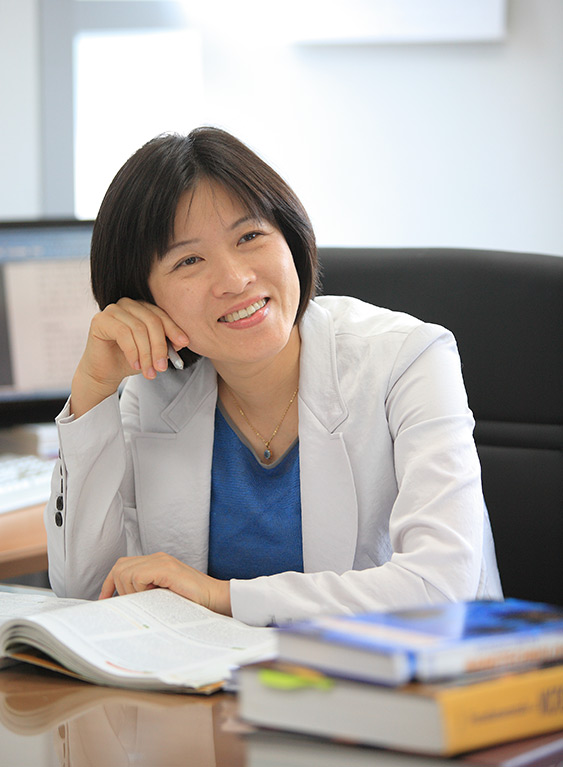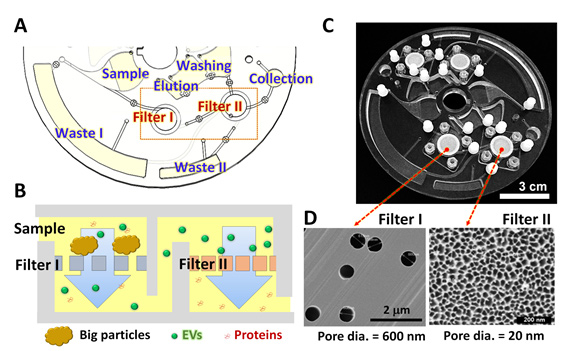주메뉴
- About IBS 연구원소개
-
Research Centers
연구단소개
- Research Outcomes
- Mathematics
- Physics
- Center for Underground Physics
- Center for Theoretical Physics of the Universe(Particle Theory and Cosmology Group)
- Center for Theoretical Physics of the Universe(Cosmology, Gravity and Astroparticle Physics Group)
- Center for Exotic Nuclear Studies
- Dark Matter Axion Group
- Center for Artificial Low Dimensional Electronic Systems
- Center for Theoretical Physics of Complex Systems
- Center for Quantum Nanoscience
- Center for Van der Waals Quantum Solids
- Center for Relativistic Laser Science
- Chemistry
- Life Sciences
- Earth Science
- Interdisciplinary
- Center for Neuroscience Imaging Research(Neuro Technology Group)
- Center for Neuroscience Imaging Research(Cognitive and Computational Neuroscience Group)
- Center for Algorithmic and Robotized Synthesis
- Center for Genome Engineering
- Center for Nanomedicine
- Center for Biomolecular and Cellular Structure
- Center for 2D Quantum Heterostructures
- Center for Quantum Conversion Research
- Institutes
- Korea Virus Research Institute
- News Center 뉴스 센터
- Career 인재초빙
- Living in Korea IBS School-UST
- IBS School 윤리경영


주메뉴
- About IBS
-
Research Centers
- Research Outcomes
- Mathematics
- Physics
- Center for Underground Physics
- Center for Theoretical Physics of the Universe(Particle Theory and Cosmology Group)
- Center for Theoretical Physics of the Universe(Cosmology, Gravity and Astroparticle Physics Group)
- Center for Exotic Nuclear Studies
- Dark Matter Axion Group
- Center for Artificial Low Dimensional Electronic Systems
- Center for Theoretical Physics of Complex Systems
- Center for Quantum Nanoscience
- Center for Van der Waals Quantum Solids
- Center for Relativistic Laser Science
- Chemistry
- Life Sciences
- Earth Science
- Interdisciplinary
- Center for Neuroscience Imaging Research(Neuro Technology Group)
- Center for Neuroscience Imaging Research(Cognitive and Computational Neuroscience Group)
- Center for Algorithmic and Robotized Synthesis
- Center for Genome Engineering
- Center for Nanomedicine
- Center for Biomolecular and Cellular Structure
- Center for 2D Quantum Heterostructures
- Center for Quantum Conversion Research
- Institutes
- Korea Virus Research Institute
- News Center
- Career
- Living in Korea
- IBS School
News Center
| Title | Lab on a Disc, Setting the Foundation for Diagnosing Diseases | ||||
|---|---|---|---|---|---|
| Name | Department of Communications | Registration Date | 2017-04-03 | Hits | 6938 |
| att. |
 thumb.jpg
thumb.jpg
|
||||
Lab on a Disc, Setting the Foundation for Diagnosing Diseases- CHO Yoon Kyoung, Group Leader at the IBS Center for Soft and Living Matter - Interview PreviewQ: Director Steve Granick and you go back quite a long way. Q: You left Samsung Advanced Institute of Technology (SAIT) to join Ulsan National Institute of Science and Technology (UNIST). Q: You are participating in publication of the journal Lab on a Chip by the Royal Society of Chemistry (RSC).
FAST disc and Exodisc open a new chapter in cancer diagnosis and treatmentsResearch teams led by Group Leader CHO Yoon-Kyoung of the IBS Center for Soft and Living Matter have been in the spotlight with their recent research outcomes: i) one of Cho's research teams reported in Analytical Chemistry a new technique, Fluid Assisted Separation Technology (FAST) disc that separates live circulating tumor cells (CTCs) from whole blood at a liquid-liquid interface; ii) another one of Cho's research teams demonstrated in ACS Nano an integrated centrifugal microfluidic platform (Exodisc) that enables researchers to effectively identify cancer-causing substances, like extracellular vesicles (EVs) in urine or blood. Cho is a world-renowned researcher in lab-on-a-disc technology. Lab-on-a-disc is a small diagnostic tool that is cheap and easy to use which can be useful in finding a sign of cancer in blood or urine. For its simplicity and convenience, it is often called "a laboratory in the palm of the hand". Cho says, "Lab-on-a-disc tracks down biomarkers, such as CTCs or EVs, that can be used for liquid biopsy to find traces of cancer or other diseases." The technology can simplify the current disease testing procedures that require invasive tissue samples and lab culture. Circulating tumor cells shed from a primary tumor travel in the bloodstream to spread into different parts of the body. Therefore, detecting CTCs in time can aid the early detection and monitoring of metastatic spread of cancer. However, discriminating cancerous cells from normal cells in the blood is not easy since the concentration of CTCs inside a blood sample is extremely low. The blood volume of a lab-on-a-disc testing sample is about 1 ~ 3 milliliter and contains only a few dozens of CTCs, which is tiny in comparison to the billions of red blood cells and millions of white blood cells. Conventional CTC detection requires complex preprocessing steps and expensive blood samples. "FAST disc is a very simple and user-friendly system. The blood sample is processed on a disc and centrifugally distributed into microfluidic chambers where the disease pathogens can be identified from their DNA/RNA, so that the right therapies are applied," Cho explains. In other words, the device allows healthcare professionals to provide customized cancer treatment for individual patients. In collaboration with Pusan National University Hospital, researchers also validated the accuracy of FAST disc's CTC detection performance by performing blood tests of 142 patients with various cancers and 50 healthy individuals. Specifically, they confirmed that FAST disc provided the same genetic information from CTCs isolated from the blood of patients with lung cancer as the genetic information obtained from the previous testing standards using the examination of tissue specimens. Cho's second research team presented Exodisc that identifies EVs from urine. EVs are present in almost all types of body fluids. They were initially considered as garbage bags used to discard cellular trash, but they are found to play a vital role in intercellular communication and progression or spreading of tumors. Despite the increasing clinical importance of EVs as potential biomarkers in the diagnosis and prognosis of various diseases, current methods of EV isolation and analysis are far from efficient. Cho's research team developed a new lab-on-a-disc platform for simple and quick EV preparation from urine within 30 minutes using a table top-sized, low G-force centrifuge. Cho also noted that their Exodisc not only operates automatically, but yields far better results than what is possible with the standard ultracentrifuge methods. For example, mRNA concentration of the EVs prepared by her method yields 100 times more that of the ultracentrifuge method. Cho states, "The most prominent feature of the two devices is that they enable size-selective, microfluidic analyses from raw biological samples such as whole blood or urine: FAST disc isolates CTCs of tens of micrometers (㎛, 1×10-6 of a meter); Exodisc for EVs of 40-1000 nanometers (nm, 1×10-9 of a meter). FAST disc is designed to process blood samples with much lower force than conventional methods as the bottom fluid assistant chamber stays filled with liquid."
FRUIT Laboratory raises young researchers' aspirations and supports their developmentCho's laboratory has a unique name, FRUITS Laboratory. FRUITS is an acronym of Fluidics & Reactions Using Integrative Technology & Science which speaks about the broad spectrum of her interest of research. Cho explains, "The main research theme of FRUIT Laboratory is to understand the mechanism underlying fluidic behavior in micro/nano scales, bio-molecular and chemical reactions, and its integrative implementations of technology and science. We are also interested in translational research of biomedical engineering to clinical application and have invented novel devices that help to enhance our knowledge on such themes." Cho adds, "My lab's name, 'FRUIT' also highlights my vision of what teaching is all about – raising young people's research aspirations and supporting their development. Talented researchers are the fruits of our FRUIT Laboratory," she says. Cho has been focused on exploring the interaction between immune cells and cancer cells since she came to learn from other researchers' experiments that immune cells eventually found cancer cells even in a complex biological pathway, and metastatic cancer cells show unique behavior dynamics. Applying engineering and physics principles to investigate the dynamics of immune cells and cancer cells, Cho has long been investigating how immune cells react to cancer cells and normal cells, and how they in particular affect behavior dynamics of cancer cells. Cho initially didn't expect to join Director Granick's center. However, watching Director Granick bring outstanding researchers to his center as well as offering her the opportunity to join the center, she came aboard in the hope "to explore interesting themes that are also complementary to the center's other researchers. I always try to find novel research topics, and Director Granick has helped to pursue new ideas by creating an autonomous research environment."
FRUIT Laboratory aspires to be a sought-after location for young researchersCho experienced the product development and commercialization of research outcomes at the Samsung Advanced Institute of Technology. First example was a silicon-based polymerase chain reaction (PCR) chip that allows DNA amplification within 20 minutes while the previous technique took almost two hours for the same process. The lab-on-a-disc that can test more than 20 different blood tests was also commercialized. The technology was licensed to Samsung Electronics. They were the fruits of Cho's more than ten years of research on DNA chips, funded by Korea's Ministry of Commerce Industry and Energy. Cho reflects, "In the beginning of the lab-on-a-disc project, we could not guarantee any level of success, and it was quite challenging to experiment on new ideas. However, that also made the project all the more exciting and rewarding than other programs." Cho was also a pioneer at UNIST, from setting up different departments of the school to designing the school's curriculum. As the first chair of the School of Life Sciences, she paid close attention to get all the details in order. "I received an offer from Director Granick when I began to think about having more research focus after putting my energy into organizing the new school," Cho says. Cho often tells students to be a person who other researchers want to work with, emphasizing the importance of good character, not only research capabilities. "Students study only for their own benefit, but it is quite a short-sighted perspective. When you share what you have learned with others, you will gain more from the experience in the end. That is what is needed for collaborations and what I personally experienced from my research career." Cho has been mentoring her students to experience UNIST's undergraduate scholarship program, Undergraduate Research Opportunity Program (UROP). She says, "Once studying abroad, students become more confident about themselves and proactive than before." Cho tells us what she aspires to achieve at IBS. "I want to make FRUIT Laboratory a sought-after research organization that young researchers want to join over MIT or Harvard. In turn our research will help develop novel therapeutic approaches. Most of all, it is my hope that students who passed through my lab are inspired to become pioneers in their field." |
|||||
| Next | |
|---|---|
| before |
- Content Manager
- Public Relations Team : Yim Ji Yeob 042-878-8173
- Last Update 2023-11-28 14:20















